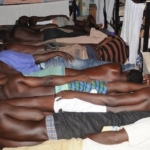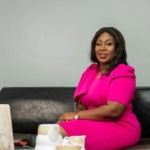
It was meant to correct, but instead, sentencing has become a burden. At Nsawam Prison, Ghana’s largest correctional facility, the cost of reprimand is measured not only in overcrowded cells and strained resources, but also in shattered lives and a justice system under siege. Built to hold 717 inmates, it now holds over 3,550, more than five times its capacity. The result? Staggering congestion, transforming the facility into a symbol of a strained justice system, where delays and deprivation are the norm rather than the exception.
Legal aid, often seen as a constitutional right, is practically non-existent for many of these prisoners. Without it, fair representation becomes a privilege only a few can afford. Breakfast, lunch, and supper; all hunched on a GH¢5 stipend.
Trapped in the iron-clad gates and high-rise walls of the Nsawam prison, these men and women must change, with the idea of becoming better humans. Some return even worse, some with a different perspective on life.
Among those trapped in the system is Leonard, a man who has spent the last eight years on remand. He has never faced trial, received a verdict, or even been given a clear timeline for his case.
His story, while deeply troubling, is not uncommon. It mirrors the experience of hundreds of inmates whose fates hang in limbo due to systemic failures and an acute shortage of legal support.
Kwame, aged just 24, is another example of the human cost. Convicted of robbery and assault, also without legal aid. Yet, he remains hopeful.
“If someone could help me file an appeal,” he says, “maybe things could change.” But help remains elusive.
Eastern Regional Commander and Deputy Director of Prisons, Patrick Thomas Seidu, warns that the facility is slowly reaching its breaking point and, without swift reforms, the situation could spiral further.
The Nsawam story is not just about numbers. It’s about people, men and women, crammed into a system that’s crumbling from within. Many entered as suspects, but left broken, hardened, or worse.
For many, prison becomes a revolving door. Some leave, only to return not because they want to, but because they were never truly free. Without rehabilitation, support, or even basic legal assistance, re-entry into society becomes another uphill battle.
And yet, hope still lingers behind those iron gates. Some inmates have found faith. Others, perspective. A few dream of change not just for themselves, but for the system.
For now, though, they remain stuck, watching the days blend into years. Backlogs in the courts, inadequate prison infrastructure, and a near-paralysis in legal aid provision have left thousands of these lives in limbo.
For those behind the walls of Nsawam Prison, justice is not just delayed, it’s disappearing. Until the justice system is overhauled and meaningful reforms are implemented, the human cost of this crisis will only deepen.



